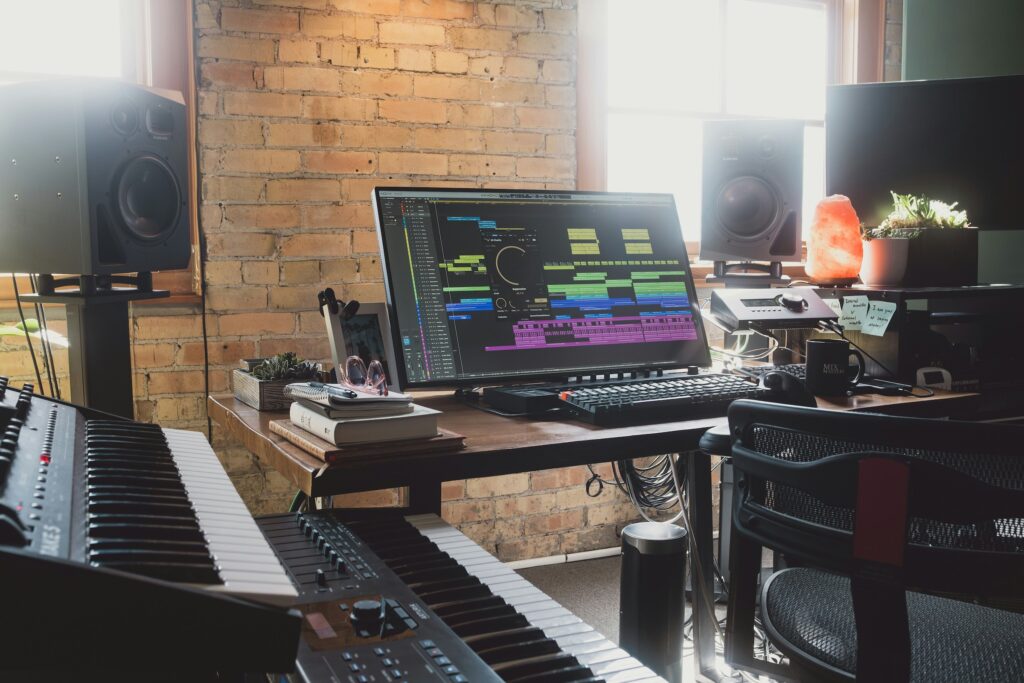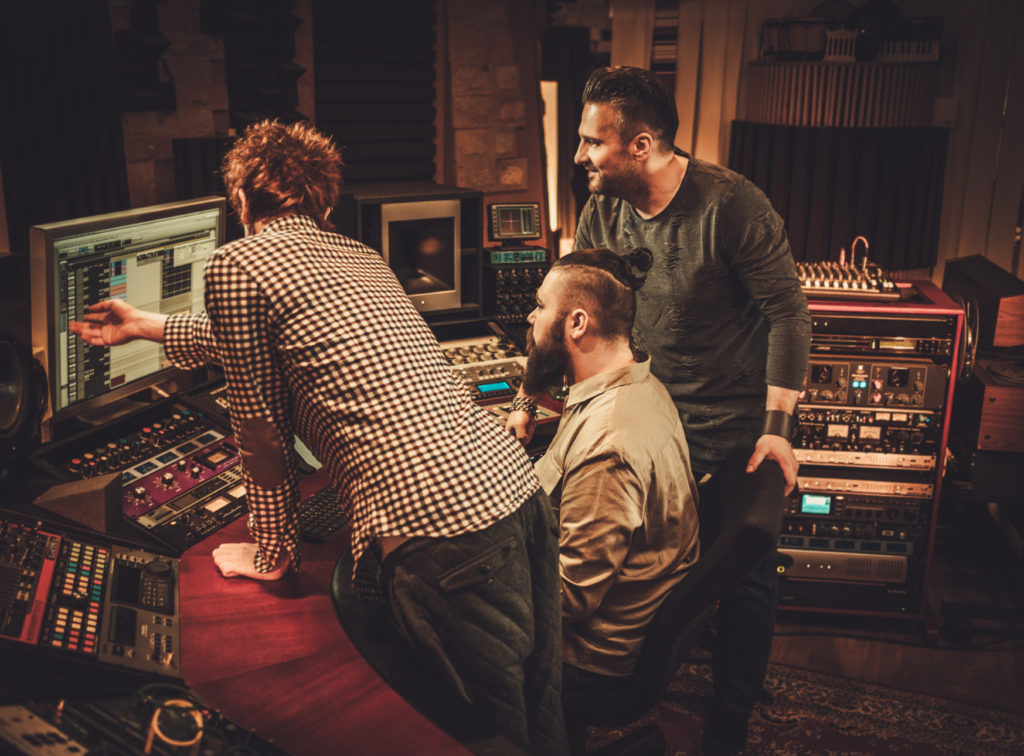I have a small studio. Do I need studio management Software?
Today, we are speaking to the owners of small audio production studios. This could relate to a small one-person home studio, up to a small team within a commercial facility.
The question is: I have a small studio. Do I need studio management software?
Whether or not you need studio management software depends on the specifics of your recording studio and your workflow. At Sonido Software, we often hear studio owners say something like, “It’s just me. I don’t really need a system to keep track of my work,” or “There’s just two of us, and we seem too small to worry about software.”
The truth of it really boils down to the benefits that a studio management software platform can provide. In truth, whether you are a small one-person studio or a large facility with multiple studio rooms and employees – many of your workflows and needs are still very relevant and similar.
So does studio management software benefit a larger studio with more employees MORE than a small one- or two-person operation? Should a small studio consider studio management software?
Here are seven considerations on how studio management software could benefit your small audio production studio:

1.
Purpose
The first question we have to ask is: What is the purpose of your production studio?
Are you taking clients either in-studio or remotely? Will you be charging for your services?
If the answer to either of the previous questions are “Yes”, then you are running your studio as a business, and as such, you may have greater needs for organizing and managing projects and business efforts than say, a hobbyist or someone producing their own music. Studio management software can absolutely help you to not only build your early-stage business, but also help you grow your business and increase your revenue over time.
2.
Studio Size and Complexity
If you’re running a small studio with a simple setup, you might manage just fine with manual systems or basic tools. You can find a number of free or cheap systems that typically specialize in doing “one thing”. And they can work well for those individual purposes.
However, something to keep in mind is your time involved with your systems. If you cobble together a dozen different disjointed systems, you may find that you are spending far too much time navigating to various systems, logging into each system, and manually populating information across each disconnected application (double entry). While it may be a “free” or “cheap” way of doing business, you’ll eventually find that your time is worth more than manual entry and the added time and stress of managing so many different systems.
If you have multiple projects, clients, and tasks to juggle at any given time, studio management software can help keep everything organized. As a single system, all your tools and systems are designed within a single platform, helping to save you time and energy. You log into one system, and everything you need is already at your fingertips.
3.
Studio Scheduling
Often times, studios get started with a scheduling system like Google Calendar. It can absolutely work! However, a generic calendar can only get you so far. While you can populate basic information about a booking title, date, time and description, you don’t get much more than that.
What generic calendars don’t offer is a full studio management experience. You cannot link the calendar event to a Project and project details, you cannot run reports on sessions, you cannot easily see a client’s booking history or document equipment usage, client experience, etc. And most generic calendars also do not allow you to create your own custom fields to capture additional information – they are designed to be very basic. That’s not always a bad thing, but it can be limiting for managing your studio business.
A dedicated studio management software system will include features for scheduling sessions, managing bookings, handling client communications and sending automated reminders to client for sessions (often with the ability for you to customize the communication). If your studio deals with a lot of bookings, having a dedicated system can streamline this process and reduce the chance of double bookings or missed appointments.
These systems also often include an online booking portal that you can configure, allowing your clients to select a booking package, select and booking date and time, populate essential details for the booking, and even capture a deposit payment to save the booking date.
Even as a one-person small studio, having an effective system that automates some of these scheduling processes for you can be a big time saver and help make you look more professional.

4.
Project Management
Effective project management helps with tracking the progress of different projects, managing files, and coordinating between different aspects of a project. Even if you manage a single project at a time, there are often a large number of notes, conversations and details involved in the project. The last thing you want is to forget key details about a client project and lose your client’s trust.
If you handle multiple projects simultaneously, the importance of effective project management is compounded. Having a studio management system is invaluable for keeping track of project deadlines, important details and deliverables.
5.
Invoicing and Receiving Payments
A small studio will often take client payments however they can get them – whether it’s cash, credit card, PayPal, CashApp… we end up giving our client all the power in deciding how they will pay, as we simply just want to be paid!
While there’s nothing inherently wrong with this concept, it can become an accounting nightmare to keep track of all these payment from different sources without a system in place. And having to pull multiple reports out of numerous payment gateway systems to perform your year-end accounting may become a daunting and undesired task.
Managing finances, sending invoices, and tracking payments can be greatly simplified with studio management software. These systems will normally have integrated systems, which simplify the process of quoting or invoicing your clients, as well as making it easy to get paid – and often without giving up the ability for you to allow your clients to pay you through their preferred payment option!
Having a studio management system will help you to be better organized with your financials, provide a more professional experience to your clients with quotes, invoice and payment requests, and will ultimately help you get paid more quickly.
6.
Client Relationship Management (CRM)
As a small studio, do you want to provide your clients with a positive experience in working with you? Do you want to easily know how often a client books sessions with you, or have insights into which contacts are repeat clients, and which are a greater opportunity for doing more business with you?
These are all rhetorical questions – of course we want to provide our clients with a positive experience, and we do want repeat business!
But do you have a way to keep all your contacts and clients organized? Do you document notes about sessions, client questions that you’ll follow up on, and reminders for yourself?
You can document all these details on a notepad or in the Notes app on your smartphone. But in a pinch, can you easily find the details without scouring notepads or frantically searching through all your phone notes?
A studio management system includes a client relationship management module (CRM), with records many details, such as client interactions, preferences, booking and project history, tasks and reminders, and much more. You can easily pull up a client record to see all these details – and much more.
While there’s no doubt that we can recall key information from memory as a single-person studio, having a system to organize and compile all necessary details is far more effective, and helps us to feel much more professional.

7.
Time & Cost
What is outlined is just a small list of considerations. As a small studio, you may not have as many needs as a large facility – but many of your needs are equally important.
You still need to organize studio bookings. You still need to manage clients and communications. You still need to invoice your clients and capture payments…
Regardless of studio size, there are key business management processes that we are looking for, and they honestly don’t vary as much as you would think based on the size of your business.
What if you could save yourself minutes every day that add up to additional free hours every week by using a system that automates studio processes? Would that be of benefit to you? You could fill that saved time with more sessions and increase your overall revenue – all from using a system to manage your business most effectively.
Studio Management Software – Do I need it?
Regardless of your studio size, studio management software can help you to organize clients and information, manage studio bookings, more effectively collect client payment, review business performance metrics, and much more. Having dedicated studio management software is just as important for a small studio as it is for a large studio in many ways.
Sonido Software is the leading studio management software platform that includes everything you need to manage your studio within a single system.
Interested in learning more about how Sonido can help your small studio business run more effectively? Request a demo from our team today!


